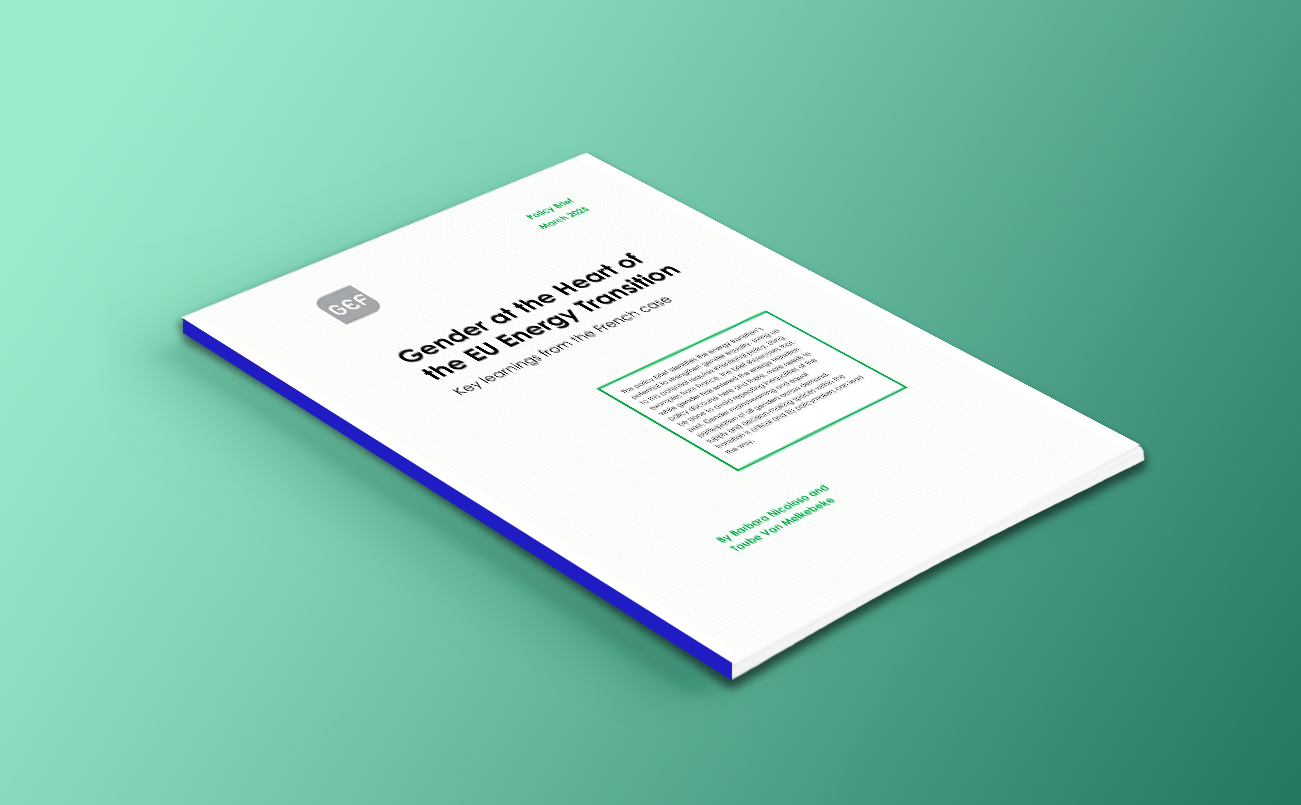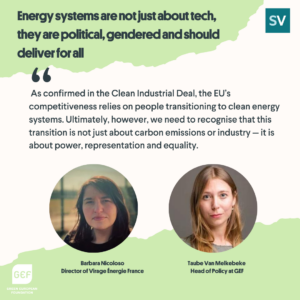About the Knowledge Community
The climate emergency, caused by a continued overstepping of planetary boundaries, urges an accelerated ecological and energy transition. But, due to the immense scope and complexity of the required changes, and to their effects on people’s lives, this cannot be fulfilled by a simple swapping of fossil fuels with clean energy. Both the climate crisis as such and transition policies impact inequality, albeit at different speeds and intensity. This understanding should be at the forefront of the EU’s policy frameworks if it wants its citizens to support its political project.
A just, fair transition doesn’t increase inequalities but fights them, and at the same time doesn’t create new ones. Developing and implementing environmental and energy transition policies must integrate this aim. To do so, we are led to question the way our society currently works and to evolve our transition towards transformation thinking.
One of the essential areas of interest in that sense is the one of gender equality. Economic and social inequalities between genders are significant, despite positive changes since the 1950s. Many are rooted in our fossil fuels-dependent systems, meaning that the transition away from those fossil fuels also comes with an opportunity to consciously eliminate gender inequalities.
This Knowledge Community zooms into this finding. We examine the links between the fossil fuels-based energy model and gender inequalities, to then identify how we can avoid (re-)producing them in clean energy models. Our aim is to expose how transition, or rather, transformation policies, and in particular energy sufficiency policies, can be levers for reducing gender inequalities. We determine political conditions required to ensure that the fight to preserve the environment and the societal battle for gender equality go hand in hand, and develop political proposals for decision-makers to enable this.
This Knowledge Community is based primarily on an in-depth study of the French context, in order to draw detailed lessons that can be shared with other countries and institutions of the European Union.
Expert
- Barbara Nicoloso, Director of Virage Énergie
Policy Brief
Gender at the Heart of the EU Energy Transition
 This policy brief identifies the energy transition’s potential to strengthen gender equality. The publication exposes the gendered nature of our relationships to energy and the link between the fossil-based energy systems and gender inequalities. The energy transition has the potential to tackle these inequalities – but to effectively counter these traditional dynamics, intentional policy is required.
This policy brief identifies the energy transition’s potential to strengthen gender equality. The publication exposes the gendered nature of our relationships to energy and the link between the fossil-based energy systems and gender inequalities. The energy transition has the potential to tackle these inequalities – but to effectively counter these traditional dynamics, intentional policy is required.
In the media
Energy systems are not just about tech, they are political, gendered and should deliver for all SUSTAINABLE VIEWS
Get involved!
Would you like to join this Knowledge Community ? Get in touch by filling this form.
For further information, send an email to taube.vanmelkebeke@gef.eu!


